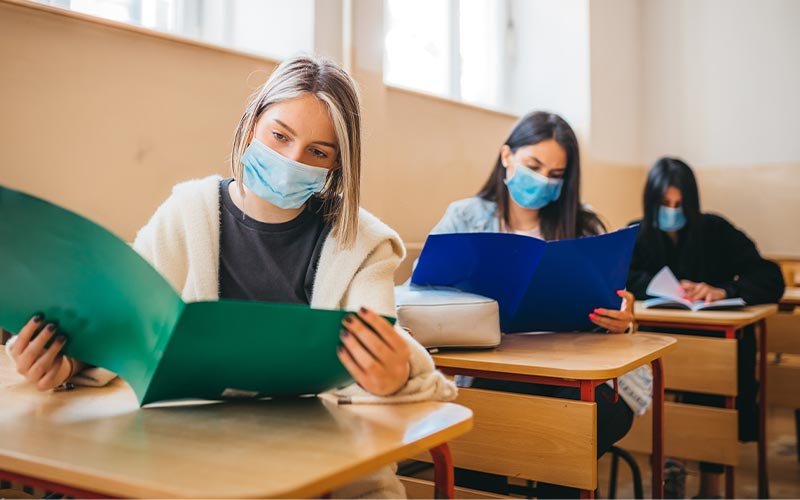
As school officials debate how to safely reopen schools amid the COVID-19 pandemic, a new report surveying 1,275 school social workers across the country offers insights and recommendations.
Gordon Capp, a Cal State Fullerton assistant professor of social work, is one of the authors of the report, “Opening Schools Safely in the COVID-19 Era: School Social Workers’ Experiences and Recommendations,” alongside Michael S. Kelly of Loyola University Chicago, Ron Avi Astor and Kate R. Watson of UCLA, and Rami Benbenishty of Hebrew University of Jerusalem.
Key findings from the study, in which many of the respondents reported working in schools with lower socioeconomic status, include:
- Many school social workers reported having limited to no contact with some of their students because they couldn’t establish a connection with them during the COVID-19 shutdown.
- SSWs expressed significant concerns about the motivation and engagement of the 81% of students with whom they did work.
- SSWs reported that a majority of their students and families had urgent needs related to food insufficiency (62.4%), housing instability (42.8%), health issues (61.6%), individualized student tutoring (62.3%) and mental health services (75.7%).
“The most pressing issue is that we have many children and families who are struggling with basic needs,” said Capp. “How then, can we expect these students to show up at school and make academic progress?
“Regardless of whether classes are virtual or in-person, academic progress is second to living in a safe place, having enough to eat, and being physically and mentally healthy.”
Secondly, a deep acknowledgement of the inequities present in schools is critical, says Capp. “Not every school needs the same thing, so we need to work to understand schools and their communities, and then pour in resources to help people.”
As school social workers help students and families through the pandemic, while juggling the health and safety of their own families, the researchers also recommend social and emotional support for school staff.
“We’re suggesting that school staff, including social workers and teachers, be supported in the same way as other emergency and essential personnel. So at a basic level, ensuring that personal protective equipment is available,” he said. “This will be critical as schools reopen, but also as social workers are having to go out into the community to reach their students and families.”
Capp plans to continue discussing these findings with Cal State Fullerton students and faculty this fall, while the Department of Social Work ramps up efforts to train students in telehealth.
“Universities need to help train social workers so that they are ready to engage clients in virtual environments,” he said. “We need to help social workers be ready to assess and engage clients, and deliver interventions in online environments.
“One of the things we learned from the social workers in our study is that many of them are scrambling to create online curriculum and resources for students and families,” Capp added. “We need universities and professional organizations to help create these materials so that social workers can spend their time engaging kids and families, rather than building resources.”
Contact: Lynn Juliano, ljuliano@fullerton.edu